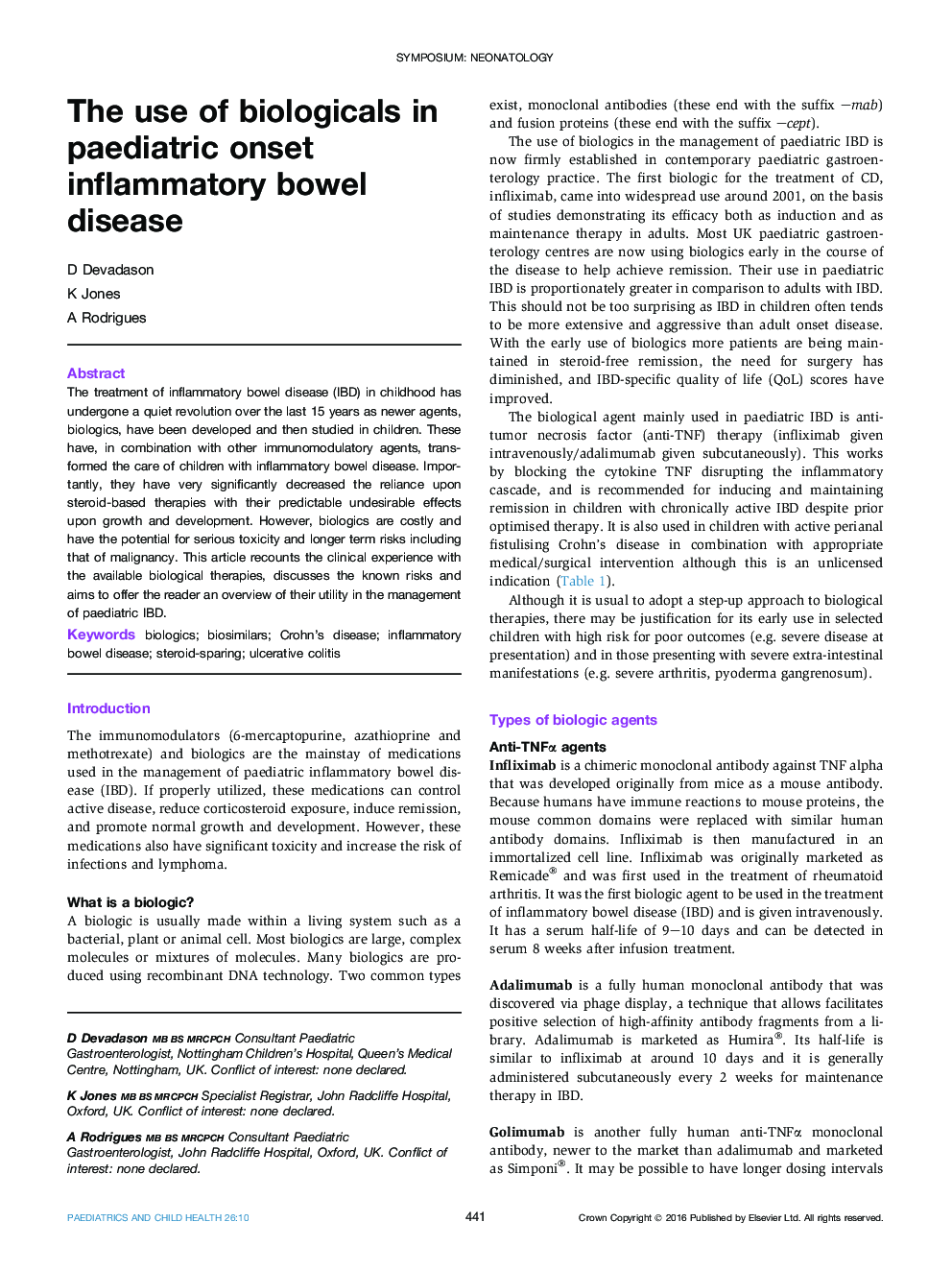| Article ID | Journal | Published Year | Pages | File Type |
|---|---|---|---|---|
| 4171866 | Paediatrics and Child Health | 2016 | 4 Pages |
The treatment of inflammatory bowel disease (IBD) in childhood has undergone a quiet revolution over the last 15 years as newer agents, biologics, have been developed and then studied in children. These have, in combination with other immunomodulatory agents, transformed the care of children with inflammatory bowel disease. Importantly, they have very significantly decreased the reliance upon steroid-based therapies with their predictable undesirable effects upon growth and development. However, biologics are costly and have the potential for serious toxicity and longer term risks including that of malignancy. This article recounts the clinical experience with the available biological therapies, discusses the known risks and aims to offer the reader an overview of their utility in the management of paediatric IBD.
